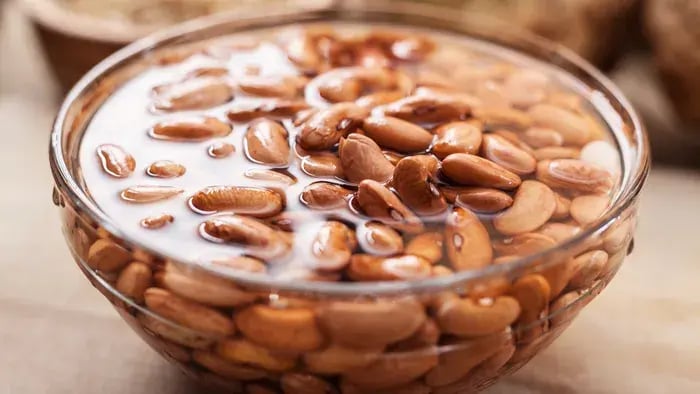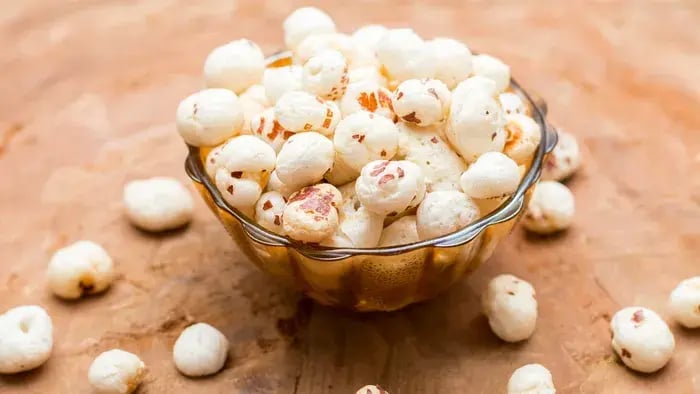- Soaked Almonds
- Ghee (Clarified Butter)
- Paneer (Indian Cottage Cheese)
- Moong Sprouts
- Roasted Seeds (Pumpkin, Flax, Sunflower)
- Peanuts
- Curd (Dahi)
- Makhana (Fox Nuts)
- Eggs
- Whole Grains (Wheat, Dalia, Brown Rice)
Introduction
Exams are the time when your child needs to be at their best, focused, calm and sharp. While preparation and study habits are important, food also plays a big role in supporting their brain function. Food made with natural, home-friendly ingredients can help improve concentration, memory and energy during these critical days.

Luckily your kitchen is full of ingredients that can support your child’s mental performance. Simple foods like soaked almonds, bananas, moong sprouts, paneer, curd and green leafy vegetables like spinach can make a big difference. Seasonal fruits like oranges, guavas and pomegranates not only provide natural energy but also keep the mind refreshed.
Even small changes, like adding a spoon of ghee to roti, using whole grains instead of maida, or offering homemade snacks like roasted chana or murmura chaat, can keep your child full and focused. These meals are not heavy or too rich so perfect for long study hours.
Here you will find a list of easily available brain friendly foods that you can include in your child’s diet during exams.
10 Foods That Promotes Brain-Boosting During Exams
During exam season, children need more than just books and revision. Their growing minds require the right fuel to stay focused, sharp, and calm. Here are easily available brain-boosting foods that you can include in your child’s exam diet.
Soaked Almonds

Soaked almonds are known to support memory and concentration. According to a study published in, Nutrients 2021, they contain vitamin E and healthy fats, which help in better brain function and protect brain cells. Giving 4–5 soaked almonds daily before school or study time can help your child stay focused and alert during long hours of learning.
Ghee (Clarified Butter)
As per a study published in, J Ayurveda Integr Med 2024, ghee is rich in healthy fats that are essential for brain development. It helps calm the nerves, supports memory, and provides steady energy. Add a small amount to your child’s lunch or dinner — in dal, roti, or even on steamed rice — especially during exam time when mental pressure is high.
Paneer (Indian Cottage Cheese)
As per a study published in, J Food Sci Technol 2011, paneer contains protein and B-vitamins that support brain health and learning. It also helps in building neurotransmitters — the brain’s messengers. Add paneer to parathas, roll it in rotis, or make simple paneer bhurji for a quick, brain-fuelling snack.
Moong Sprouts
According to a study published in, Nutrients 2019, moong sprouts are a rich source of protein, iron, and B-complex vitamins, all of which help in improving focus and preventing fatigue. You can make sprout chaat, add them to poha, or serve lightly cooked sprouts with seasoning as a part of breakfast or evening snack.
Roasted Seeds (Pumpkin, Flax, Sunflower)
According to a study published in, J Food Sci Technol 2014, roasted seeds like pumpkin, flax, and sunflower are high in zinc, omega-3 fatty acids, and magnesium — nutrients that help boost memory and reduce mental stress. Roast a mix and give a spoonful daily as a snack or add them to curd or upma.
Peanuts
According to a study published in, J Food Sci Technol 2015, peanuts are packed with healthy fats, vitamin B3, and folate, which improve brain blood flow and memory. You can roast and serve them as a dry snack, make peanut chikki, or add ground peanuts to chutneys or curries for extra flavour and value.
Curd (Dahi)
As per, Ministry Of Consumer Affair, curd is rich in probiotics and helps maintain gut health, which in turn supports better mood and brain clarity. When children are calm and comfortable, they learn and remember better. Serve curd with parathas, as a raita, or even blended into a smoothie.
Makhana (Fox Nuts)

According to Ministry of Food Processing Industries, Government of India, Makhana contains iron, protein, and antioxidants that help improve concentration and reduce tiredness. You can roast them lightly with ghee and send them in a small tiffin, or pack them as a study-time snack to munch between subjects.
Eggs
As per a study published in, BMJ Paediatr Open 2024, eggs are an excellent source of choline, which helps build brain cells and support memory. Boiled eggs, egg bhurji, or stuffed egg parathas are easy and filling options to include during exam time. They're quick to cook and easy to digest, making them perfect for busy mornings.
Whole Grains (Wheat, Dalia, Brown Rice)
According to a study published in, Nat Rev Neurosci 2012, whole grains release energy slowly, helping the brain stay active for longer without dips in focus. Start the day with a bowl of dalia, pack a whole wheat roti with sabzi, or serve khichdi with brown rice for lunch. These simple meals help avoid sluggishness during long study sessions.
Conclusion
The mind works best when the body is supported with good food. With easily available items like almonds, paneer, ghee, and seeds, you can create meals that keep your child focused, calm, and prepared to give their best during exams. These ingredients don’t need fancy recipes, just regular use in home-cooked meals can make all the difference.
Her love for storytelling began with reading her grandfather’s speeches, where Tarishi saw the power of words in creating lasting memories. Combining her passions for food and writing, she has turned her life into a fulfilling path of sharing stories that celebrate flavours and how food brings communities together.
The views expressed are that of the expert alone.
The information provided in this content is for informational purposes only and should not be considered a substitute for professional medical advice, diagnosis, or treatment. Always seek the advice of your physician or another qualified healthcare provider before making any significant changes to your diet, exercise, or medication routines.
References
https://pmc.ncbi.nlm.nih.gov/articles/PMC8229803/
https://pmc.ncbi.nlm.nih.gov/articles/PMC10789628/
https://pmc.ncbi.nlm.nih.gov/articles/PMC4008736/
https://pmc.ncbi.nlm.nih.gov/articles/PMC6627095/
https://pmc.ncbi.nlm.nih.gov/articles/PMC4375225/
https://pmc.ncbi.nlm.nih.gov/articles/PMC4711439/
https://consumeraffairs.nic.in/sites/default/files/file-uploads/ctocpas/Curd.pdf
https://pmfme.mofpi.gov.in/pmfme/newsletters/enewsmakhanaspecial5.html
















